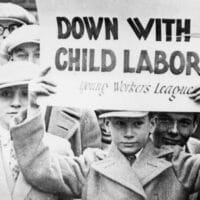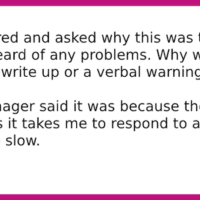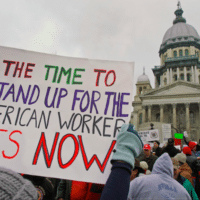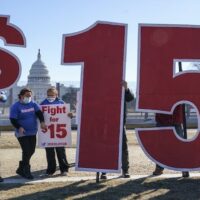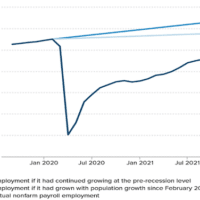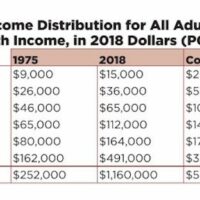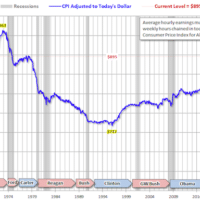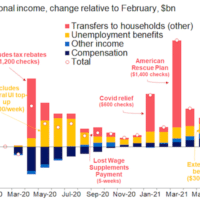-
No, You Aren’t Hallucinating, the Corporate Plan for AI Is Dangerous
Big tech is working hard to sell us on artificial intelligence, in particular what is called “artificial general intelligence.” At conferences and in interviews corporate leaders describe a not-too-distant future when AI systems will be able to do everything for everyone, producing a world of plenty for all. But they warn, that future depends on […]
-
Exposing the big con: The false promise of Artificial Intelligence
The leading big tech companies are working hard to sell Artificial Intelligence (AI) as the gateway to a future of plenty for all.
-
Feeling the heat: capitalism and global warming
Global carbon dioxide emissions (the main cause of global warming) continue to rise, hitting a new high in 2023.
-
The climate crisis: Corporations are gambling with our lives
The World Meteorological Organization has declared 2023 “the warmest year on record, by a huge margin.”
-
U.S. foreign policy: A bipartisan embrace of militarism
In December 2022, President Joe Biden signed into law the National Defense Authorization Act, approving “national defense” spending of $858 billion for fiscal year 2023
-
The rollback of child labor protections is well underway
The hunt for profits is driving ever more despicable labor laws and practices.
-
In the U.S. you can be fired for any or no reason—it doesn’t have to be this way
The United States is an employment “at-will” country. That means, absent a union contract, a boss can fire a worker for almost any, or even no reason, and without advance notice. Well—with the exception of Montana.
-
Recession alert: we need a new unemployment insurance system
With the Federal Reserve pushing up interest rates, we appear headed for a new recession.
-
System change, class war, and the WW2 economic conversion experience
The climate crisis has driven our planet into uncharted territory. We are close to breaching critical environmental thresholds, setting in motion destabilizing changes to our global climate system that could well make the earth unlivable for humans and countless other species.
-
The Supreme Court: working hard to make a business-friendly America
President Calvin Coolidge, in a January 1925 speech to newspaper editors, asserted that “the chief business of the American people is business.” The claim, although far from true, did capture the short-lived success of business leaders in structuring the country’s social institutions for the benefit of the wealthy.
-
Slip slidin’ away—the disappearing practice of overtime pay
Slip slidin’ away—that is what tends to happen to pro-worker reforms in our economic system. Things are structured so that without constant vigilance and struggle on our part, gains are gradually undone. A case in point: overtime pay.
-
Labor law failings, workplace organizing challenges, and possibilities for union renewal
If you follow the news it must seem like joining a union is a step outside the norms of U.S. law.
-
It’s past time for a $15 federal minimum wage
President Biden’s 2022 State of the Union Address included a call for a $15 federal minimum wage. According to an Economic Policy Institute study, a phased increase to a $15 federal minimum wage by 2025 would raise the earnings of 32 million workers—21% of the workforce, no small thing.
-
Don’t believe the hype, big finance continues to threaten our survival
According to defenders of the status quo, the best response to our most serious problems is to let markets work their magic; government regulation of private business activity only makes things worse.
-
Once again austerity proponents tell it like it isn’t
There appears to be growing consensus among economists and policy makers that inflation is now the main threat to the U.S. economy and the Federal Reserve Board needs to start ratcheting up interest rates to slow down economic activity.
-
The dollar costs of inequality: they are greater than you think
Pretty much everyone accepts that inequality is a big problem in the U.S. But it is doubtful that most people truly grasp how successfully U.S. elites have captured the benefits of economic growth and, as a result, how much the resulting inequality has cost them.
-
U.S. workers in motion: an assessment of labor’s gains
The reality is that the labor movement has a long struggle ahead and it should not be distracted by unwarranted fears of inflation.
-
Economic inequality means retirement insecurity for most U.S. households
This is far from a “hot take”: financial wealth in the United States is highly concentrated, with most households, especially Black and Hispanic households, owning few financial assets
-
Pandemic economic woes continue, but so do deep structural problems, especially the long-term growth in the share of low wage jobs
Many are understandably alarmed about what the September 4th termination of several special federal pandemic unemployment insurance programs will mean for millions of workers.
-
Playing the capitalist game: heads they win, tails you lose
According to an Economic Policy Institute report, between 28 and 47 percent of U.S. private sector workers are subject to noncompete agreements.






